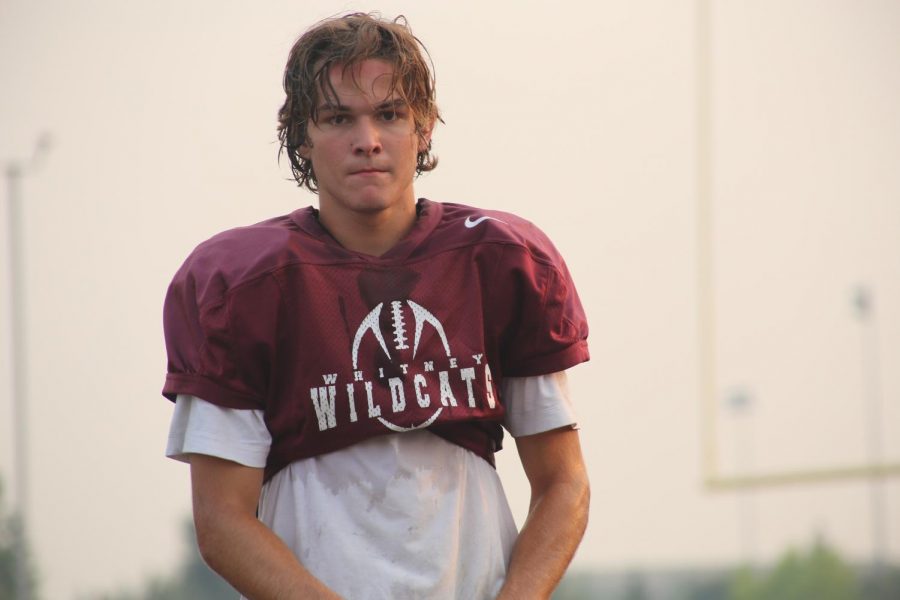Teams forced to make modifications during practices due to air quality
During a water break, Nicholas Miller stands on the field surrounded by the smoky air. On Aug. 7, during practice at 6 p.m., the varsity and JV football players practiced in 88 degree temperature while the air quality was at 90 AQI.
With 16 wildfires currently burning in California, the state is covered in a blanket of smoke. Not only do the fires affect those in the surrounding areas, the smoke created by the fires impacts the air quality for residents miles away. Athletes are experiencing these effects firsthand with practices cancelled or moved indoors in order to avoid the harmful side effects.
There could be some confusion about why some teams have had their practices cancelled while others have not. Athletes also have become concerned about their health and not being able to play the sport to the best of their ability.As a result, parents have become uneasy about the safety of their athletes.
“Some people drop out of practice due to the air quality and because of this, they’re coughing more than they usually do. I’ve gotten a bloody nose and a worsening cough [due to the smoke],” freshman football player Chase Butler said.
In order to avoid these conditions, cheer and tennis have been taking breaks more regularly and have moved practices indoors to avoid the air. Although the situation is not ideal, it is a way for the teams to get practices in before the seasons starts.
“I have noticed that our team was easily tiresom when we practiced outside, and now that we are inside, I have noticed that we have lost endurance as a team, since we aren’t able to run as much,” varsity cheer member Marissa Lueth said.
Other sports, such as football and cross country, haven’t seemed to make any drastic changes to their drills and practices as the nature of their sports makes it harder to move practices indoors. According Athletic Director Mr. Jason Feuerbach, the unsafe level of air quality for sports practices is 159, a level that hasn’t been reached yet. However, when it reaches 150, Feuerbach and the coaching staff take more precautions to ensure players’ safety. Athletes have had to use their own judgment at each practice about their health and limitations.
“Prior to practice, especially in the smoky weather, I make sure to stay hydrated and bring lots of water,” varsity tennis player Lexy Humphries said.
As a response to these complaints, Feuerbach sent an email Aug. 7 to all fall athletes regarding health issues and whether practice should be cancelled. The email described the different resources that are being used to measure the quality of the air in our area, such as towers located in Lincoln and Roseville.
Feuerbach said “In all of our trainings, they’ve stressed a few things: (A) Just because you can smell it and see it doesn’t mean it is very unhealthy or hazardous. (B) Just because it seems clear, doesn’t mean it isn’t very unhealthy or hazardous. (C) You have to look at the ozone and particle readings to make a decision along with wind patterns and temperature. A decision should not be made simply on one factor, all factors need to be analyzed and evaluated.”
by Emma Accacian, Taylor Butler, Emily Pontes, Jessica Rose, & Katelyn Vengersammy








